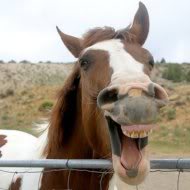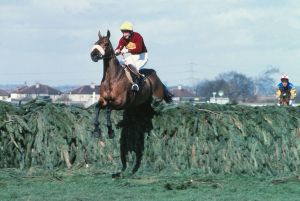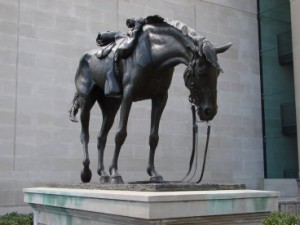Strange title you might think but there is a reason for it. Let me explain. Almost every day on the radio and the television I hear that (for example) “today is National Pie day” or “today is National Autism day” or the dreaded “today is National no smoking day”. Well the one truly National day that doesn’t get described that way is “National Grand National” day. Love it or hate it it the Grand National is an event that grips the nation. Blanket coverage on the television, radio and newspapers. The Sun (and others) provide a ‘National sweepstakes kit’. It seems everybody gets involved. Old ladies placing 25p each way on half a dozen horses. Massive queues at the bookies. Its been like this since I can remember. Donkeys years in fact, and funnily enough it seems that some of the runners I have bet on over the years have run like donkeys.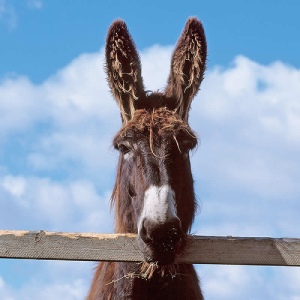
The down side to Grand National day is the day after when my Facebook feed is full of people going on about how its cruel to the horses as they are forced to run and jump, they are drugged and whipped and then when there racing career is over they are sent to the slaughterhouse to make dog food. Most of the things said are inaccurate. Ranting and making false statements only weakens the overall case for those that are anti horse racing. I don’t particularly like horses (although I do like to bet on them occasionally). They are big scary things who are very willful and unpredictable. I have ridden a horse only twice but both times I absolutely crapped myself. I had no control. There was no steering wheel, no brakes, no seatbelt and no radio(!). The horse basically went wherever it wanted to at whatever speed it fancied. Never again will I climb aboard. It will probably upset horse owners if I say that horses are a bit mental, but to me it seems they are.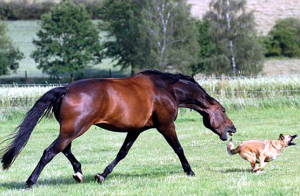
Even though I don’t like horses I wouldn’t want a horse nor any other animal to be deliberately or unnecessarily harmed. The horses that run in the Grand National are not ordinary horses. They are not like the horses you might see standing around in fields or working at a local riding stable. You wont see these pulling a carriage containing a bride or groom or pulling a dray full of beer or in the past delivering milk. These are horses that have been bred to run and jump for more than 150 years. All these horses want to do is run and jump, its genetics. Its what they do. Good evidence for that is the fact that if the jockey falls off the horse during the race the horse will usually carry on running and will also jump the fences and not go round them which they easily could. They do this not because they are pack animals as is often stated but instead they do it because they like it.
There is an article in my newsfeed today written by PETA , a basically American organisation concerned with animal welfare. It is entitled “8 things they don’t tell you about horse racing”. You can read the full article here, if you really want to. Most of the points they make are just pathetic attempts at sensationalism. For anti PETA material on the web try this or this. I am making no comment about either of these two sites nor PETA‘s own site. Make your own mind up. All I will say is that if any organisation has a particular viewpoint it will look for anything that reinforces its own views and magnify them but I think people are not stupid and can discover the truth for themselves if they look beyond the sensational headlines. People need to take a balanced view.
The thing that is often been brought up is that the horses are forced to jump the fences. Well anybody that has ever had anything to do with horses will tell you that if the horse doesn’t want to do something no amount of cajoling will make it do it. A fit and in-training steeplechase horse weighs 500kgs. You will not be able to force it to do anything it doesn’t want to do. My own limited experience with horses have proved that to me.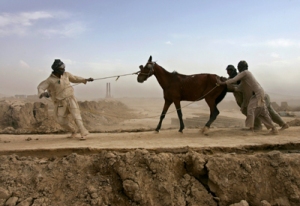
Horses do unfortunately get killed or injured when racing but despite what you might have heard its not a massive number. Modern steeplechase races have an average of just over 4 equine fatalities for every 1,000 horses taking part, according to the British Horseracing Authority. By my maths that’s 0.4%. A relatively small number. The Grand National has received a lot of bad press over horse fatalities over the years because it is a massively high-profile event but changes have been made in recent years. Some of the bigger fences have been reduced in height and at Beechers Brook one of the historically more dangerous fences the landing side ditch has been filled in and its overall height has been much reduced.
In the past virtually any horse could be entered for the race (like The Pie in National Velvet, haha!), but these days its much harder to get a horse in the race. Each horse must be of high quality, it must have finished in the first 3 places in a good quality National Hunt race, must be rated at over 120 (a measure of ability compared to over horses, 120 is a very high rating) and be aged 7 years or more (racing horses are at their peak for national hunt between 6 and 10). If you had low quality horses in a race as tough as this there would definitely be more injuries and fatalities.
There can only be a maximum of 40 runners in the race, there has been as much as 66 in the race in the past although that was was many years ago.
Sometimes the jockeys ‘whip’ their horse. If you were to look at a slow motion film of a horse race you would see that the jockey is just swinging the whip and not actually hitting the horse. Thoroughbred horses mark very easily so it it is easy to see how many times that they have been hit.
The Jockey Club and other organisations stipulate that any more than three actual strikes and you are fined and eliminated from the race. If a horse is marked when he gets in, the jockey can face fines and elimination because the horse has been hit too hard. The whip i s vital in helping the jockey ‘steer’ the horse. Some would say there is nothing wrong with a good whipping!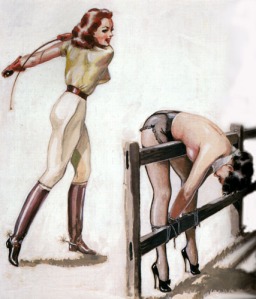
After all is said and done steeplechasing is a dangerous sport but the horses are bred for, they like to do it and thankfully they have a reasonably low risk of being killed. The top horses after looked after very well when not racing but if you drove around the countryside you would see horses all over the place who are badly treated and neglected having originally been bought as ‘pets’.
We humans first domesticated horses over 4000 years ago and they have served us very well, including the estimated 8 million horses worldwide that were killed during the first world war.
